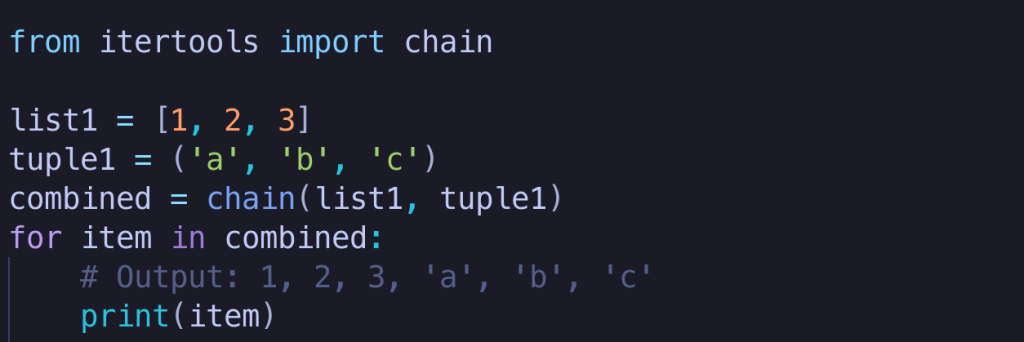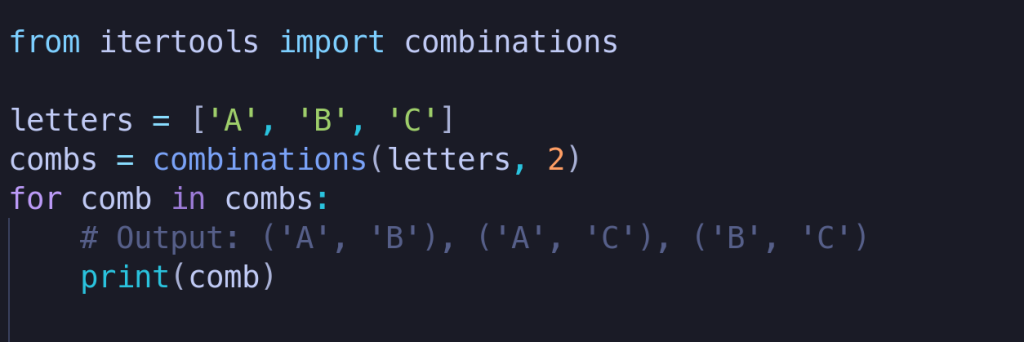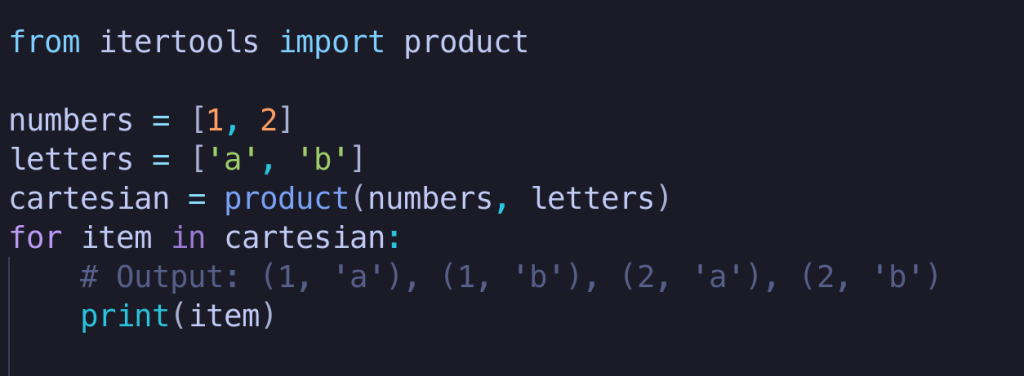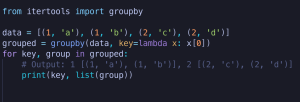Exploring Python’s itertools Module: A Comprehensive Guide
Python, being a versatile programming language, provides developers with a rich set of tools and libraries to simplify complex tasks. One such powerful library is part of Python’s standard library. In this blog post, we will delve deep into the itertools module, exploring its functionalities, use cases, and benefits.
Introduction to Itertools
The itertools module is a collection of tools for handling iterators and iterable objects efficiently. It offers various functions that allow developers to perform common operations on iterators, such as generating combinations, permutations, and Cartesian products, iterating in a round-robin fashion, and more. By leveraging the functionalities provided by, developers can write concise and expressive code for handling iterable data structures effectively.
Key Functions in Itertools
Let’s explore some of the key functions offered by the itertools module:
1. count(start, step)
The count function generates an infinite sequence of numbers starting from start with a step size of step. It is often used in conjunction with other functions, like zip for creating indexed iterators.
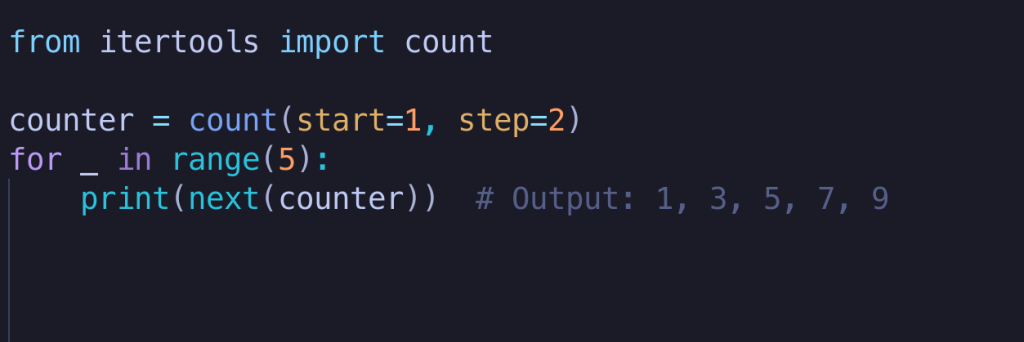
2. cycle(iterable)
The cycle function creates an infinite iterator that cycles through elements of the given iterable indefinitely. It can be used to create repeating patterns or iterate over a sequence repeatedly.
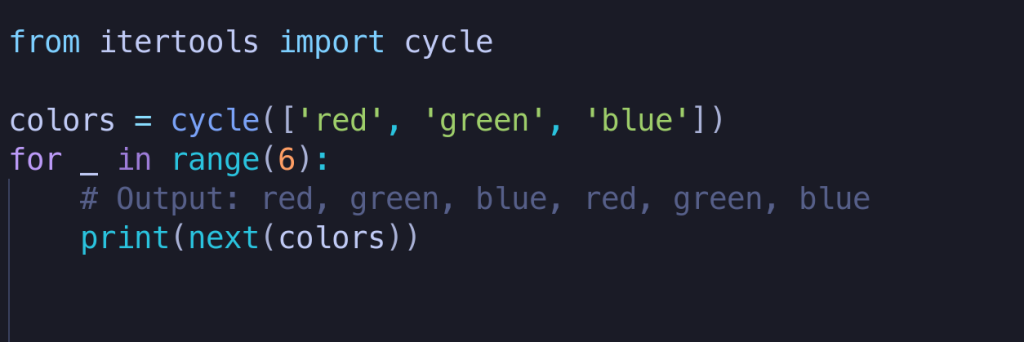
3. chain(*iterables)
The chain function combines multiple iterables into a single iterator. It is useful for sequentially iterating over elements from different iterables as part of a single iterable.
4. combinations(iterable, r)
The combinations function generates all possible combinations of length r from the elements of the given iterable. It is handy for tasks involving combinations, such as generating subsets or permutation-based operations.
5. product(*iterables, repeat=1)
The product function computes the Cartesian product of multiple iterables, optionally with repeated elements. It generates tuples containing all possible combinations of elements from the input iterables.
6. groupby(iterable, key=None)
The groupby function groups consecutive elements in an iterable based on a specified key function. It returns an iterator of tuples where the first element is the key and the second element is an iterator containing the grouped items.
Use Cases of itertools
The itertools module finds application in various scenarios, including:
- Generating permutations and combinations for tasks like password generation or optimization algorithms.
- Handling iterators efficiently in data processing tasks, such as grouping and filtering.
- Implementing advanced iteration patterns, such as round-robin iteration or cycling through elements.
- Simplifying repetitive tasks involving iterators and iterable objects.
Benefits of Using Itertools
Using the itertools module offers several advantages:
- Efficient Memory Usage:
itertoolsfunctions operate lazily, consuming memory only as needed, making them suitable for handling large datasets. - Concise and Readable Code: The functional approach provided by
itertoolsallows developers to write concise and expressive code, reducing complexity and improving readability. - Versatile Functionality: With a wide range of functions for handling iterators and iterable objects,
itertoolsprovides developers with versatile tools for various tasks. - Performance Optimization: Many
itertoolsfunctions are optimized for performance, leading to faster execution times compared to manual iteration or custom implementations.

